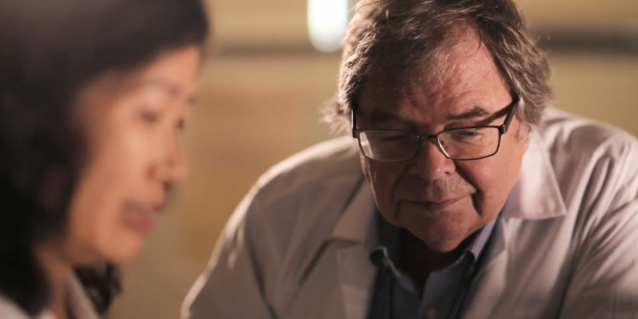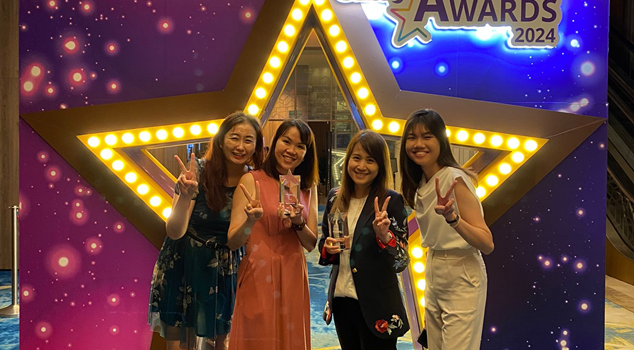As written in Dagens Nyheter in Stockholm, Sweden (21 July 2024)
Collaborations between leading forest nations are crucial for the sustainable development of the forest industry. An example is the exchange between the Royal Institute of Technology (KTH) in Stockholm and pulp, paper and board manufacturer APRIL Group in Indonesia, a member of the RGE group of companies.
“KTH keeps us updated with innovative technology that promotes sustainability in our forests and factories,” says Eduward Ginting, Chief Operating Officer at APRIL Group, who earned his master’s degree at KTH.
For 20 years, KTH in Stockholm has maintained an exchange program with APRIL Group, one of the world’s largest manufacturers of pulp, paper and board, with plantations and manufacturing operations on the island of Sumatra. APRIL Group’s products, made from renewable materials, reach millions of households daily.
Mikael Lindström, professor of pulp technology at KTH, explains: “APRIL Group’s employees can study at the master’s level with us, specializing in paper and pulp. They receive a comprehensive education that concludes with a thesis project. Indonesia has experienced enormous development and surpassed Sweden several years ago in terms of pulp production – while Sweden and Finland remain leaders on the academic side. For our students, the exchange is beneficial because the employees from APRIL are extremely ambitious and dedicated.”
Profitable business with a focus on sustainability
Lindström says that he has visited most of the world’s approximately 400 paper and pulp mills, including APRIL Group’s expanding operations in Sumatra. Around 3.8 million tons of pulp and over one million tons of paper are produced there annually.
The company recently started producing paperboard to meet the world’s increasing demand for sustainable packaging. Furthermore, Asia Pacific Rayon, also a member of the RGE group of companies, produces about 300,000 tons of viscose fiber to supply the textile market with recyclable materials.
The large operation includes a city of more than 10,000 employees, with high-quality housing, schools, healthcare, leisure facilities, and other amenities for the employees and their families.
“APRIL Group is at the forefront in terms of technical innovation, processes and sustainability. They work according to BAT (Best Available Technology), which means using the most advanced available technology to limit emissions and environmental impact. Thanks to their profitability, they can recruit highly skilled employees and invest heavily in sustainable initiatives,” says Lindström.
“Life’s best years”
The collaboration between KTH and APRIL began with the very first student from the company, Eduward Ginting, who earned his master’s degree in pulp and paper technology at KTH 16 years ago. Today, he is Chief Operating Officer at APRIL Group, responsible for over 13,000 employees.
Eduward describes his years in Sweden as “among the best in my life”. He was very impressed by the high academic level and the close cooperation between the university and the Swedish forest industry.
“KTH is one of the world’s leading universities in pulp and paper technology. In addition to cutting-edge knowledge, through KTH I was able to meet the largest technology suppliers in the pulp and paper industry, with whom I have since kept in touch. The exchange with KTH has meant a lot to our business,” he says.
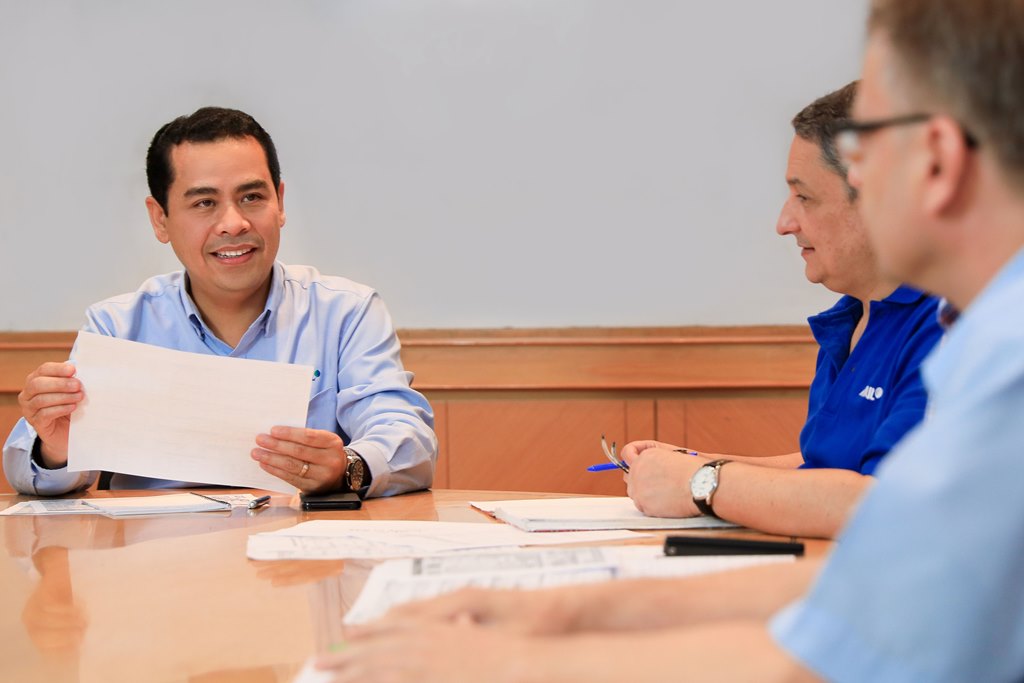
Eduward Ginting was APRIL’s first student at KTH 16 years ago, and now serves as the company’s Chief Operating Officer
“We send future leaders to Sweden”
“We have two goals with the exchange. First, we want to stay updated with the latest research and technology in the pulp and paper industry. The second goal is for our employees to grow as individuals and leaders,” says Eduward.
“The years at KTH in Stockholm, in a different culture, provide new perspectives, which can give greater confidence to develop our business in the future. We see the employees we send to Sweden as future leaders of our company.”
Widi Suganda is one of APRIL Group’s talents who studied at KTH. He received his master’s degree in macromolecular materials in the fall of 2023.
“Those were fantastic years. The knowledge I gained means a lot in my daily activities at APRIL and became a springboard for my career. KTH is an international university that has given me valuable contacts from different parts of the world. I made many company visits and collaborated with a range of talented researchers,” says Widi.
Sustainability and circularity are cornerstones of APRIL Group’s operations, and Widi believes that Sweden is a leader in these areas.
“The Swedish forest industry and research are characterized by the aspiration to replace fossil-based materials with bio-based ones, and to increase circularity by extending the life cycle of raw materials – something that is completely in line with our business,” Widi said.
Eduward agrees. “The sustainability index in Sweden is very high, and our collaboration with Swedish research helps us implement the best available innovative technology that promotes sustainability in our forests and factories. For us, sustainability is not a choice, but an essential part of our lives and our business.”
Eduward added: “Circularity is our guiding star. We work hard to minimize waste by converting all materials into value in our business. Waste that would otherwise be discarded becomes biomass energy and other valuable products such as fertilizer, which, together with our large solar energy plants, contributes to the forestry’s energy supply.”
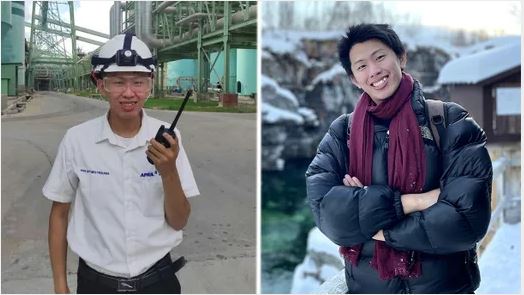
Widi Suganda is one of APRIL Group’s talents who studied at KTH
The value of “fika” and “lagom”
Eduward Ginting and Widi Suganda conclude by sharing how they were inspired by Swedish culture during their years at KTH.
“Swedish work culture is characterized by straightforwardness,” Widi said. “You are good at expressing your opinions, listening to each other, and making joint decisions. Then, you stick to the decision and work effectively and constructively. I have also adopted the Swedish concept of time; if you work efficiently enough, you will get good results.”
Eduward once again agrees. “Swedish mentality is less talk and more action. We have taken that to heart and are trying to implement it at our company. The Swedish custom of having coffee breaks at work has also inspired us. When I came to Sweden, I wasn’t used to it, but I immediately realized how valuable it is to have a short coffee break – to stretch your legs, talk, and exchange thoughts. You gain new perspectives and new energy.”
Read more about RGE and APRIL
Facts about APRIL Group’s sustainability work:
- APRIL Group is one of the world’s largest producers of pulp, paper and board, and is a member of the Singapore-based RGE group of companies.
- RGE, with more than 80,000 employees, is a world leader in the resource-based manufacturing industry and is at the forefront of practical application of new technology and science to develop the bioeconomy where bio-based products circulate in a sustainable cycle.
- APRIL Group’s pulp and paper mills and forestry are located in the Riau province on the island of Sumatra in Indonesia. The business is run according to “lean manufacturing”, which means sustainable and efficient methods for using energy and water and minimizing emissions. Their PaperOne™ brand is made from 100 percent renewable fiber and is sold in more than 110 countries.
Here are two concrete examples of APRIL Group’s sustainability work:
1: APRIL uses the “production-protection” method, which helps protect forests designated for conservation and restoration. The production forests create a buffer zone that protects the forests to be conserved and the biological diversity they contain. Illegal logging – which unfortunately can occur in forested areas in Asia – is made considerably more difficult. This model provides both economic returns and job opportunities for local communities.
2: APRIL uses digital technology and drones to monitor carbon dioxide emissions from forest plantations. Digital sensors detect pests and drones are used to find plants that did not survive so that replanting can be done quickly.



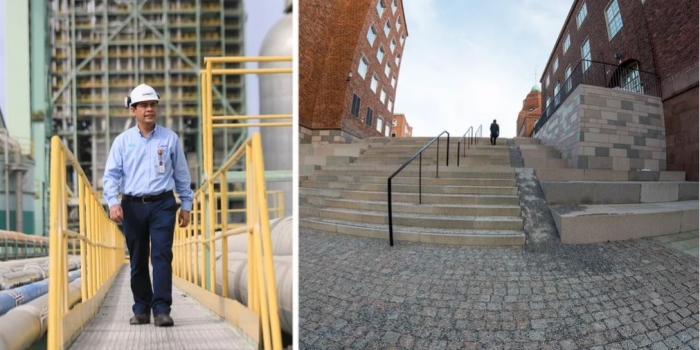


![[Guest Blog] Tanoto Foundation Scholar: The Purpose and Promise of Project Sukacita](https://www.inside-rge.com/wp-content/uploads/2018/10/Project-sukacita-3-1-700x350.jpg)
